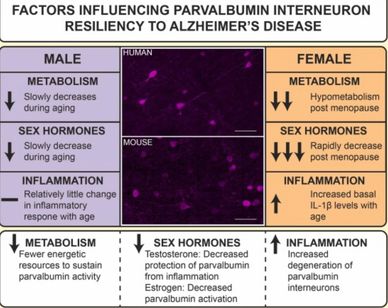About Us

Work in our lab focuses on mechanisms of learning, memory and forgetting. Our work is applicable to understanding both normal and pathological memory in conditions such as aging, dementia, Alzheimer’s disease and brain injury. We approach these broad topics using several cutting-edge techniques.

We also collaborate closely the with Sargin Lab at the University of Calgary.
Areas of Research
Mechanisms of Memory
We are interested in memory consolidation and the persistence of memory over time, the underlying neural mechanisms that support this and the pathological conditions that interrupt normal memory processes. An overarching aim is to address questions related to these research topics at multiple levels of analysis. For example, memory stability may relate to synaptic function and spine dynamics (i.e. microscale changes) however we also investigate the mesoscale and macroscale organization of memory. This can be approached by studying the functional connectivity of different regions throughout the brain.
Alzheimer's Disease
We use transgenic mouse models to understand cellular and systems level changes that occur with Alzheimer's disease pathology. Work in the lab also investigates the use of different treatment strategies based on pharmacological, neurostimulation or lifestyle based interventions.
Adult Neurogenesis
With respect to adult neurogenesis we are interested in understanding the functional consequences of adding new neurons into existing circuitry. We have previously shown at the behavioural level that adult neurogenesis provides a mechanism for reducing memory interference by enhancing forgetting of old memories. Current work is focused on examining how this occurs at the cellular and network level and whether this can be applied to conditions such as dementia or age-related memory loss where memory interference can be a substantial problem.
Recent Publications
Ramkumar et al., 2024, Biological Psychiatry
Ramkumar et al., 2024, Biological Psychiatry
Ramkumar et al., 2024, Biological Psychiatry

Long-Term Impact of Early-Life Stress on Serotonin Connectivity
In collaboration with Dr. Derya Sargin's Lab
Terstege & Epp 2023, Neurosci & Biobehav Rev
Ramkumar et al., 2024, Biological Psychiatry
Ramkumar et al., 2024, Biological Psychiatry

Parvalbumin as a sex-specific target in Alzheimer's disease research - A mini-review
Terstege et al, 2023, Star Protocols
Ramkumar et al., 2024, Biological Psychiatry
Terstege et al, 2023, Star Protocols

Protocol for the integration of fiber photometry and social behavior in rodent models
In collaboration with Dr. Derya Sargin's Lab
Dawson et al, 2023, Cell Reports
Ren et al., 2023, Frontiers in Neuroendocrinology
Terstege et al, 2023, Star Protocols

Hypocretin/orexin neurons encode social discrimination and exhibit a sex-dependent necessity for social interaction
In collaboration with Dr. Derya Sargin's Lab
Terstege & Epp, 2023, Hardware X
Ren et al., 2023, Frontiers in Neuroendocrinology
Ren et al., 2023, Frontiers in Neuroendocrinology

PAW, a cost-effective and open-source alternative to commercial rodent running wheels
Ren et al., 2023, Frontiers in Neuroendocrinology
Ren et al., 2023, Frontiers in Neuroendocrinology
Ren et al., 2023, Frontiers in Neuroendocrinology

The impact of loneliness and social isolation on the development of cognitive decline and Alzheimer’s Disease
In collaboration with Dr. Derya Sargin's Lab
Terstege & Epp , 2023, Biology
Terstege et al., 2022 Frontiers in Behavioral Neuroscience
Moretti, Terstege et al., 2022 Scientific Reports

Network Neuroscience Untethered: Brain-Wide Immediate Early Gene Expression for the Analysis of Functional Connectivity in Freely Behaving Animals
Moretti, Terstege et al., 2022 Scientific Reports
Terstege et al., 2022 Frontiers in Behavioral Neuroscience
Moretti, Terstege et al., 2022 Scientific Reports

Low intensity repetitive transcranial magnetic stimulation modulates brain-wide functional connectivity to promote anti-correlated c-Fos expression
In collaboration with Dr. Jennifer Rodger's Lab
Terstege et al., 2022 Frontiers in Behavioral Neuroscience
Terstege et al., 2022 Frontiers in Behavioral Neuroscience
Terstege et al., 2022 Frontiers in Behavioral Neuroscience

Brain-wide neuronal activation and functional connectivity are modulated by prior exposure to repetitive learning episodes
Terstege et al., 2022 Molecular Brain
Evans, Terstege et al., 2022 Scientific Reports
Terstege et al., 2022 Frontiers in Behavioral Neuroscience

New neurons in old brains: implications of age in the analysis of neurogenesis in post-mortem tissue
Evans, Terstege et al., 2022 Scientific Reports
Evans, Terstege et al., 2022 Scientific Reports
Evans, Terstege et al., 2022 Scientific Reports

Neurogenesis mediated plasticity is associated with reduced neuronal activity in CA1 during context fear memory retrieval
Terstege et al., 2022 eNeuro
Evans, Terstege et al., 2022 Scientific Reports
Evans, Terstege et al., 2022 Scientific Reports

FASTMAP: Open-Source Flexible Atlas Segmentation Tool for Multi-Area Processing of Biological Images
Recent Pre Prints
Terstege, Ren et al., 2023

Sex-dependent impairments of parvalbumin expressing neurons in the retrosplenial cortex in Alzheimer’s disease
Our Funding Sources











